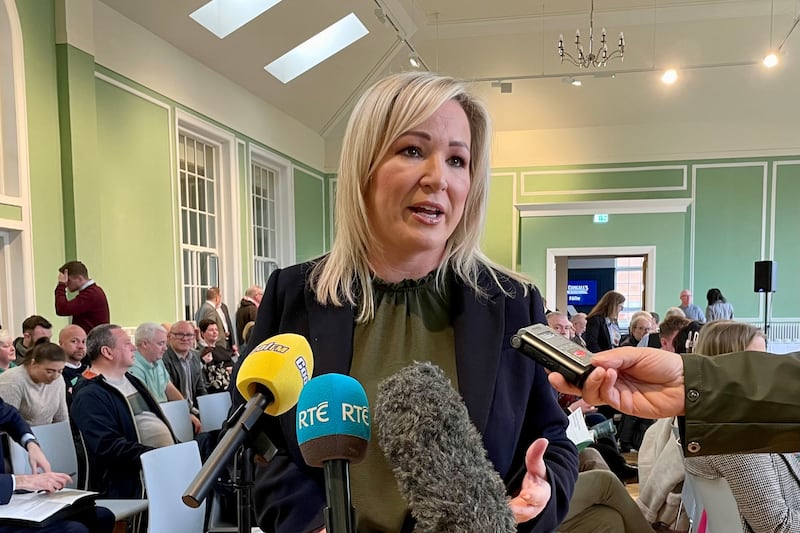Young people believe the Good Friday Agreement should be adapted to address the “unfinished business” of legacy, paramilitarism, equality, policing and political instability, according to a new report.
In a report compiled by the John and Pat Hume Foundation, more than 700 young people also warned that conflict and division continued to shape day-to-day life in Northern Ireland.
Earlier this year, the Foundation, along with a number of other groups, conducted a “peace summit” to mark the 25th anniversary of the Good Friday Agreement (GFA). The findings of the summit are being published on Wednesday at Ulster University’s Belfast Campus.
Foundation secretary, Tim Attwood said it was appropriate that the summit’s “Call to Action” was being launched on the anniversary of the “historic Yes referendum” on May 24 1998.
“This call for action offers a roadmap of issues that must be addressed through active, engaged and visionary government and supported by a robust, vocal and independent civil society,” Mr Attwood said.
Paramilitarism, lack of voice, integrated education and the failure to sustain the Stormont government were among the key issues raised by young people, peacebuilders, community groups and others during the consultation process.
The peace summit concluded there has been a lack of political progress despite the initial success of the GFA. It also found that paramilitaries were filling the vacuum created by political instability and that toleration of paramilitarism was inhibiting peacebuilding.
Other key conclusions were that there was a “concerning” romanticsation of past violence and that the past had not been systematically dealt with.
“Twenty-five years since the Agreement there is much hope, but many issues are unfinished” authors of the final report concluded.
In a series of ten calls-to-action, the summit suggested paramilitarism was still a key concern.
The report authors said: “Political leaders must ensure the rule of law is upheld and paramilitary groups demilitarised. Communities must be supported to reclaim their areas and build resilience against paramilitarism.”
The summit concluded that some issues in the 1998 Agreement should be adapted to meet current needs.
“This includes, among others, addressing outstanding issues such as legacy, rights and equality, reviewing policing, needs of new communities, the ability to collapse the institutions and designation and opening the discussion without prejudice on other issues such as Brexit and the Constitution,” the authors said.
There were also calls-to-action for the re-establishment of the political institutions, greater integrated education, civic engagement and “good relations proofing” among other issues.
“Segregation is embedded in everyday life, including housing selection, education, recreational activities, sport, religion and shopping. Good relations proofing should be applied to all policies at central and local government, including job creation, investment and housing to challenge the current societal and policy norms which foster community separation,” the report found.
Keynote speakers at the report launch include Lord Caine (NIO Minister), Denis McMahon (Executive Office permanent secretary) and Laurence Simms (Irish Scretariat, Department of Foreign Affairs).
The John and Pat Hume Foundation was established to nurture the legacy of former SDLP leader, John Hume and his late wife, Pat.








